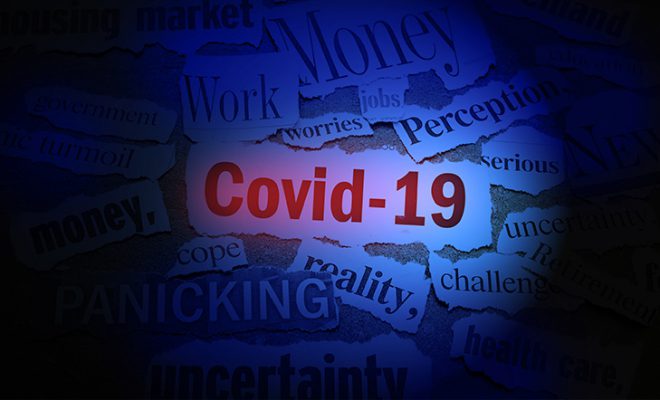5 Reasons Why Trusts Are Not Just For The Rich
A popular notion, that is often misunderstood, is that trusts are only for the rich. The reality is that a trust is helpful to people of all economic backgrounds. A trust is a legal arrangement that allows a person (the grantor) to transfer their assets, including cash, investments, properties, etc. to a private fund. This fund is managed by a person or organization (the trustee) on behalf of and for the benefit of another person, persons, or organization (the beneficiaries).
Here are 5 reasons why trusts are not just for the rich and should be included in every person’s estate plan:
Table of Contents
1. Safeguarding vulnerable beneficiaries
A very big advantage that trusts offer is protection to vulnerable beneficiaries. In this regard, beneficiaries that need protection can be minor, disabled or incapacitated children, or children considered immature or incapable to manage their inheritance. Hence, a trust with reliable trustees can help to provide for them until they are adults, or until a time they are capable and mature to handle their financial affairs. In other cases, the grantor can decide how much money the children will receive, till what age, and under what circumstances. The usage of funds can also be specified for kids who would be irresponsible in handling an estate. A trust can become a very effective management tool, for divorced, widowed, or single parents. Moreover, there are several types of trusts that can safeguard vulnerable beneficiaries.
For example, X, who is 50 years old, is a divorcee earning $4,500 monthly. She has two minor kids aged 10 years and 12 years. She fears for the financial security of her children, given the uncertainty of life. Hence, she decides to incorporate a trust in the name of her minor children and appoints her brother as a trustee. She decides that the trust will allow a certain sum to be paid every month to the kids for their living and education expenses. This will increase as they grow up until they attain maturity, upon which they become equal legal owners of their funds. However, the monthly allowance will be decided by the trustee and the execution has to be done after the demise of X. While she is alive, the funds are under her control. This allows X to safeguard her children’s future while retaining power over how her funds are managed.
2. Maintaining control
A trust is a suitable arrangement to ensure that wealth is distributed and used as per the desires of the grantor. This can be done while a person is alive and also after they pass away. This is very beneficial for those people who have concerns about the content and execution of their will. A trust is more reliable than a will and ensures that the grantor gets the final say on the asset distribution and usage. But the type of trust in such cases plays a pivotal role.
For example, consider a family in which a person has a second wife and two children, from each marriage. However, the stepdaughters do not get along very well. In such a case, to ensure that both parties get their due share, and there are no family feuds after the estate owner’s death, a trust can be incorporated. In such a case, the type of trust can be a marital/bypass trust. This particular fund becomes irrevocable after the death of the grantor and executes the inheritance plan, as per the trust deed. The distribution of the estate cannot be changed or influenced by any of the surviving beneficiaries or external parties. So, in this case, even if the spouse decides to re-marry and pass the share to a new partner, the trust will distribute the fund as per the wishes of the grantor. Thus, each party will get their due intact.
3. Tax advantages
A trust has definitive tax advantages, but it cannot be mistaken for a tax-avoidance strategy. Trusts can be leveraged to reduce the inheritance tax. Typically, a trust places the assets in a fund which is not owned by the grantor. The assets belong to the trust, and hence, the property is outside the purview of inheritance tax calculations. This means that the assets transferred to the trust will not be counted towards the Inheritance Tax Bill upon the death of the person, provided all rules and conditions are met. As of 2018, the federal government levies a tax on all estates with a value of more than $11.18 million. In some cases, trusts can also save on state transfer taxes. However, since trusts are taxable themselves as a Chargeable Lifetime Transfer, this strategy can only help minimize taxes and not avoid them completely. But this is helpful in cases where a retiree plans to eventually transfer their retirement plan distributions from accounts such as an individual retirement account (IRA) or a 401(k) account. By appointing a trust as the beneficiary for these retirement plans, the income tax can be minimized. In addition to this, if the value of the trust is below the federal exemption limit, the trust can be used to freeze the value to avoid any future increase in taxes.
4. Protecting assets
Trusts aim to secure assets. Assets are not only coveted by relatives or family members but can also be heavily impacted by lawsuits, legal penalties, creditors, divorce settlements, business liabilities, etc. It is more applicable to people who have high-risk professions, such as lawyers, doctors, architects, business owners, etc. A trust shields the assets from any malpractice, unfair lawsuits, or unlisted liabilities/claims. Moreover, a trust is also a great alternative for a pre-nuptial agreement. The pre-marriage assets can be incorporated into the trust, where both the partners are the trustees and beneficiaries. In such a case, even in the event of a separation, the assets will be protected from settlement risks. Additionally, trusts help to protect the distribution of assets and ensure they are adapted to the time and preference of the grantor. Such as, usually a person cannot revoke or change a gift given to another person. However, in a trust, the grantor can change the allocation of funds as per their desires at that time.
5. Aid for disability
A trust is the most effective and reliable medium of financial support in case of disability or incapacity in the management of financial affairs. Hence, it is advisable to set up a revocable trust where the grantor is the trustee as well as the beneficiary. In such a case, in the event of the disability of a person, the assets of the trust can be used to provide the required financial support. The ownership will remain intact until the demise of the person. Post the death of the grantor, the pre-appointed successor trustee can take charge. In case the trust is set up for a disabled child, one can opt for an irrevocable special needs trust. Under this, the child will be able to gain from the inheritance, as well as qualify for government benefits.
To sum it up
A trust is a very powerful and beneficial estate planning tool. If used wisely, it can provide a host of advantages. It has the potential to control, protect, and maximize the estate’s assets. So, to ensure that you plan your wealth and estate well, you can seek guidance from professional financial advisors.



















